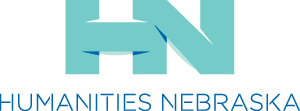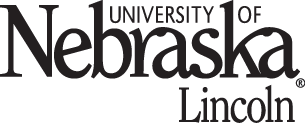 Dec. 20. 1988
Dec. 20. 1988
We were a family of nine children: five boys and four girls with many relatives. We were born and lived in the small Polish town of Komn. Later, when I was in my teens, we moved to the second largest city in Poland, the industrial city of Lodz.
I was in my twenties when the war broke out and the Germans occupied Poland in a "Blitz-Krieg". In a swift move, they created a ghetto in the dirtiest part of the city and massed all Jews behind the barbed wire. There we lived in very bad conditions and were given rations which barely sustained life. The Nazis appointed a group of Jews to manage the ghetto under their orders. We were cut off from the outside world and waited until this would end. In the meantime, we had to take care of the young and sick in temporary hospitals with few medical supplies. At their whim, the Germans took people taken from their living places as well as out of the ration lines on the pretext of work.
As time progressed, people were starving and many were beaten for no reason at all. While in the ghetto, my oldest sister and her husband, my oldest brother, his wife and their three small children, another brother and his wife, all in their thirties, were taken away without notice and we had no idea to where. Another brother was in the Polish army and lived in a different city with his wife and baby. When he came home, he found only rubble and he was also taken away. One sister, her husband and baby lived outside Lodz and we don't know what happened to them either.
We were left in our small room only with Father, Mother, and the youngest brother and sister and myself, sleeping on mattresses on the floor with a make-shift stove where we burned the wooden beds to keep from freezing. The water was brought from blocks away to the second floor. During this time in the ghetto, Father and Mother died from sickness and malnutrition. Now, ironically, we consider this lucky because they were not gassed.
Beginning in 1945 the ghetto was to be cleared and the rest were taken away in cattle wagons supposedly to work, but really to Aushwitz. There they separated men and women and children according to their plans (unknown to us) and we were put in stalls under the orders of the Kapos. Without going into details about the conditions in which we were held, they weren't even suitable for animals. We were in a stupor waiting for what would happen next, unaware that we had to wait for our turn to the crematoria.
Shortly before liberation, an order came that they needed a certain number of us to replace the German women in factories. We were taken and stood naked before a group of soldiers with Mengele pointing out in two directions: right and left. My sister, one sister-in-law and a cousin were loaded in a truck and I was shoved with others to a shower and sent to a factory where they made parts for airplanes. This was a separate chapter of our miserable existence until we were liberated by the Russians. Shortly before that, I had collapsed and was put behind a screen to die. I regained consciousness in a hospital where I was treated for gall bladder infection.
The road to my recovery was long and thorny and I finally ended up in a DP camp in Linz-Bindermichl, Austria where I found the first familiar face of a friend/nurse with whom I had worked in the ghetto hospital. She took me under her wing and helped me to function again. There I worked in the DP camp ambulance with her and others. I met my dear husband who also went through hell and lost his parents and most of his family who were never heard of again.

Ignacz and I were married in the DP camp in 1947. Alex, our son, was born in 1948 and we moved to the US in 1949. Because the DP camp had to be dismantled and we had nothing to go back to, we had to register for either Australia or the US. To us, it didn't matter where we were going, we just wanted to start a normal life. Since the quota to the US was open first, we came here. With almost nothing and not knowing the language, we started to build our new life here where we raised our son.
Alex is now forty years old, with a wife and two children: Sarah who is four and Joshua is two years old. This is our complete family here. We are grateful to have a home and an opportunity to be useful citizens in our new country. We are also grateful for having made precious friends here to supplement our lost families.
This is the most abbreviated story of my life, since I cannot even touch upon bleeding wounds which I and so many others endured.






